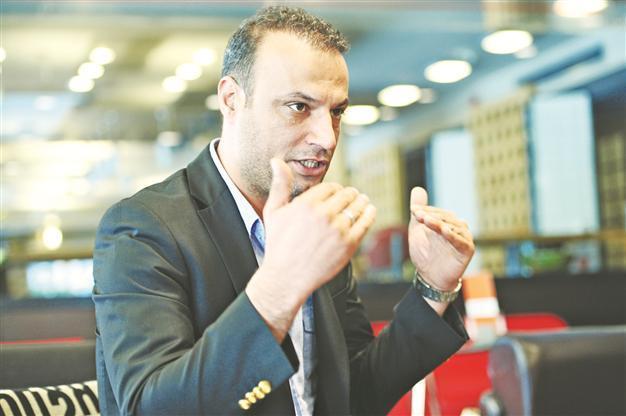Iraq likely to divide into 3: Journalist
ISTANBUL - Hürriyet Daily News

A prominent Kurdish journalist Rebwar Kerim Wali. DAILY NEWS PHOTO \ Emrah Güler
In light of the recent statement by Iraqi Kurdish leader Masoud Barzani that he may consider a referendum to create a Kurdish state independent of Baghdad due to the current political crisis, there is a possibility that Iraq may divide into three regions, said a prominent Kurdish journalist.“Almost all the political figures in the region assume that Iraq will be divided into three in the end. The crucial thing is this division should not lead to a civil and sectarian war in Iraq,” Rebwar Kerim Wali told the Hürriyet Daily News in a recent interview.
Wali was in Istanbul to attend a conference on Middle East, North Africa and Turkey, organized by the Friedrich Ebert Stiftung foundation and Helsinki Association.
Leaders from almost all of Iraq’s top political blocs will convene at a unity meeting in Arbil, the capital of Iraq’s Kurdish region, on May 7, in order to find a solution to the political crisis between the Shiite-led government and the country’s Sunnis and Kurds.
Iraqi Prime Minister Nouri al-Maliki will probably not attend the unity meeting, Wali also a managing editor of Rudaw, the first international newspaper of the Kurdistan Regional Government (KRG) said. “KRG leader Barzani; Moqtada al-Sadr, the Shiite leader of the Iraqi National Alliance; Iyad Allawi, the leader of the Al Iraqiyya group, and Sunni Vice-President Tariq al-Hashemi are all expected to attend the meeting. They will be seeking a solution to the current crisis in order to prevent any ethnic and sectarian conflict in Iraq as well as searching for alternatives to al-Maliki’s rule.”
Right to referendum
It is the Kurdish people’s constitutional right to hold a referendum for independence, and Iraq’s Sunnis also have the same right, said Wali. “The Sunnis have the constitutional right to create a federal government in Iraq. However they don’t have that right in reality right now, because Prime Minister al-Maliki has threatened military interference. There is already a de facto division in Iraq, but if this division builds up to a sectarian war, that would be a disaster.” The months-long political impasse in Iraq began when the government issued terrorism charges against the nation’s highest-ranking Sunni politician, Vice President Tariq al-Hashemi.
















